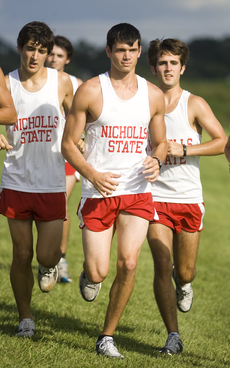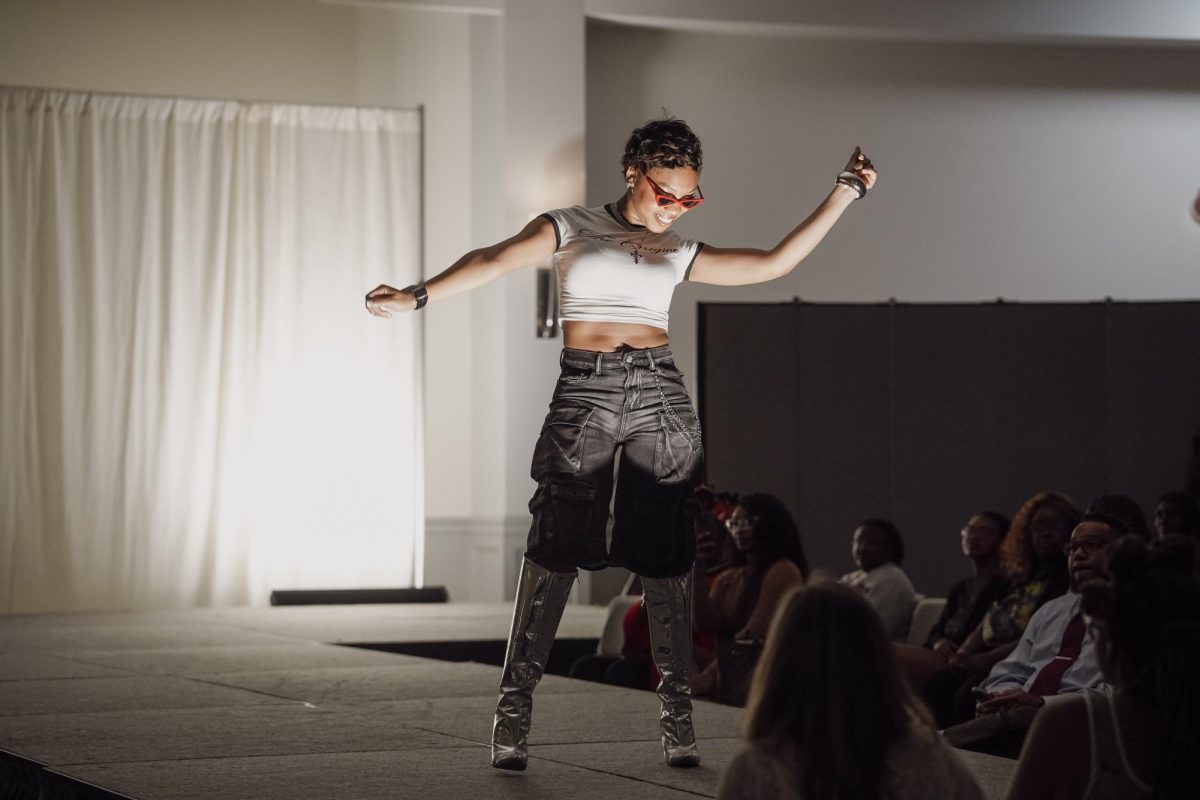Running track may just be a sport to most people, but to a Nicholls senior distance runner, it’s a freedom to do whatever he wants, despite being deaf.Joseph Fryou lives in a world without sound, but one thing is for sure-it hasn’t affected his performance on the track.
A normal day for the microbiology senior consists of waking up and running or going to class, followed by going to Anytime Fitness gym for extra workouts.
Waking up for Fryou can be challenging because he uses an alarm clock made for deaf people that Fryou said isn’t as good as other alarm clocks. Fryou also encounters challenges communicating with people at everyday places like restaurants and stores.
But once Fryou steps on the track, his opponents can’t tell the difference.
During Fryou’s freshman year at Nicholls, he ran in three of six meets and finished 23rd in the Mississippi College Invitational. Since then, Fryou has competed in all of the Colonels’ meets.
“My disability doesn’t actually affect my performance like people would think,” Fryou said. “People who usually discriminate would think deaf people are too slow, too weak, not smart, doesn’t understand the rules and so on. The advantages of being a college athlete with a disability are showing people that I can compete with hearing people just fine.”
Fryou finds his inspiration from Gallaudet University’s baseball coach Curtis Pride. The retired Major League Baseball player was the first regular full-season deaf player when he joined the Detroit Tigers in 1996.
“He shows me that I don’t have to stop at college level just because of my disability,” Fryou said. “He proved that deaf people can compete on the professional sport level.”
Fryou loves to socialize with his friends, so he often goes to places like The Last Call or The Library when he doesn’t have practice in the morning.
Friends of Fryou use their phones to chat with him when they’re out having a good time.
“I always want to say more than I can in reality with hearing people,” Fryou said. “I am limited to using universal signs or using texting on my phone.”
Because of his difficulty, Fryou feels like he’s missing out on something when his coach has to summarize what he tells the other runners on paper.
Before meets, the athletes often talk to other competitors before the start, but Fryou doesn’t have that advantage because he doesn’t bring an interpreter.
Fryou refused an interpreter to be independent.
Last season, Fryou achieved a career milestone, posting his first top 10 finish with a 10th-place time of 24:03.96 in the four-mile at the Southern Miss Invitational.
Fryou said that when it comes to running you only need a pair of running shoes, shorts and good legs, then you are good to go.
“It’s one of few sports where I don’t have to try to communicate like basketball, baseball, football and so on,” Fryou said. “I did play basketball, baseball, and football in the past and love it and had no problem using my skills and communication.”
Fryou plans to play semi-pro football once he’s done with cross country.








